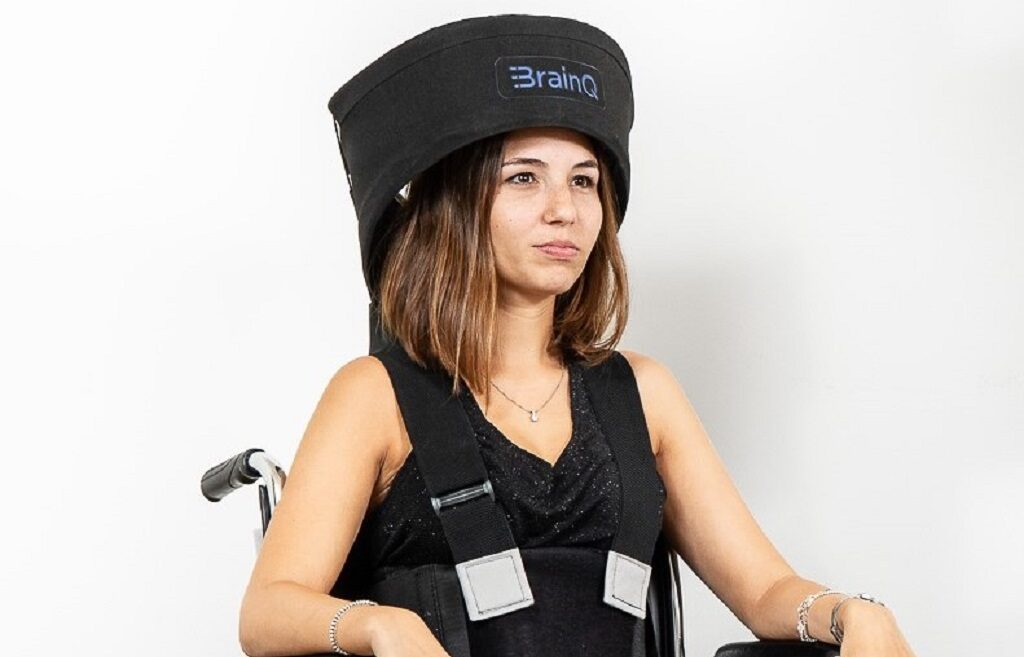Israeli medtech company BrainQ, a developer of AI-powered technology to treat neuro disorders, announced on Thursday that the US Food and Drug Administration (FDA) has designated its AI-powered therapeutic solution to reduce disability following stroke, as a Breakthrough Device.
The FDA awards Breakthrough Device designation to new types of therapeutic devices that present a reasonable expectation to “provide for more effective treatment or diagnosis of life-threatening or irreversibly debilitating human disease or conditions.”
The designation was based on BrainQ’s latest randomized controlled clinical trial results for ischemic stroke patients and provides BrainQ with the opportunity to work closely with the FDA to expedite development plans and premarket clearance, the company said. The results of this trial will be presented at the American Heart Association’s 2021 International Stroke Conference in March.
Breakthrough status also gives BrainQ access to the new Medicare Coverage of Innovative Technology (MCIT) pathway, allowing for Medicare coverage to be provided concurrently with FDA market authorization.
BrainQ’s solution is based on biological insights retrieved from brainwaves, using proprietary machine learning algorithms that translate into a frequency-tuned low intensity electromagnetic field. The therapy is delivered via a cloud-connected wearable device and is designed for scalable and portable treatment.
“We’re excited that the FDA has granted BrainQ a Breakthrough Device Designation,” said BrainQ CEO and co-founder Yotam Drechsler. “Stroke is a debilitating condition with limited recovery options, creating a huge unmet need in the US. COVID-19 has only made things worse by limiting patients’ access to treatment facilities. FDA Breakthrough Designation is an important milestone in our mission to reduce disability for these patients and treat them in the comfort of their homes.”
The company noted in a statement that the currently-approved interventions for reducing disability after a stroke, including medical and surgical options, are relevant only in the first few hours following the event. In the US, only about 5 percent of victims arrive at the hospital in time to benefit from these treatments.
BrainQ said it aims to extend this window of opportunity from the acute phase to the sub-acute phase, offering a treatment that can be used in the days and weeks following stroke, to help with residual disability.
The BrainQ device is limited to investigational use and is not available for sale in the US currently.
Related posts

Israeli AI Safety Tool Among TIME’S Best Inventions For 2024

TAU Team Discovers Mechanism To Eliminate Cancerous Tumors

Ashdod Port Investing In Startups As Part Of Innovation Strategy




Facebook comments